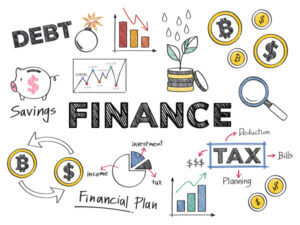The term “fixed deposit” refers to a kind of investment in which a certain quantity of money is deposited with a bank or other financial institution for a set length of time. You’ll get a fixed interest rate in return for this one-time deposit. Your initial deposit plus interest earned until maturity will be returned to you by the financial institution at the conclusion of the term you choose
Furthermore, fixed deposits are often regarded as much safer than other investment options.
Fixed deposits provide assured returns.
Cumulative fixed deposit: Interest on a cumulative fixed deposit is compounded during the deposit’s duration and paid in a lump sum upon maturity.
Non-Cumulative Fixed Deposit: Interest is paid on a periodic basis (monthly, quarterly, semiannually, or annually) and does not compound.
Standard FDs
Standard fixed deposits are investment products in which you invest a certain sum at a fixed interest rate for a set length of time. The investment or tenure length might vary from 7 days to 5 ( or sometimes it goes to 7-10) years.
Recurring Deposit
Recurring deposits are fixed deposits where you invest a certain amount monthly or quarterly for a set term. It’s fixed. Your principal and proportional interest will be returned at maturity.
Flexi Fixed Deposit
Flexible fixed deposits are connected to savings accounts. This instrument allows you to direct your bank to automatically transfer any amount above a certain balance to a fixed deposit. Liquidity and investment are benefits. Flexi-deposit interest rates are greater than savings account rates but lower than fixed deposit rates.
Tax Saving Fixed Deposit
Banks and non-banking financial companies (NBFCs) provide the opportunity to grow your capital in a risk-free environment via a product called a Fixed Deposit. Those who are considering fixed deposits as a means of tax avoidance may take advantage of the Fixed Deposit Income Tax Exemption by selecting a Tax Saver FD.
Lock in period of 5 years
Tax-saving fixed deposit (FD) accounts enable tax deductions under Section 80C of the Income Tax Act, of 1961.
Corporate Fixed Deposits
In the same way that banks provide fixed deposits, several corporations, other businesses, and non-bank financial institutions (NBFCs) also accept deposits of money for a certain amount of time and pay interest on such deposits. The fixed deposits held by these corporations and NBFCs are referred to as corporate fixed deposits.
Senior Citizen Fixed Deposits
This is for 60-year-olds. They earn high-interest rates with flexible tenure. Seniors can get loans against FDs, which can help them. They can save tax by depositing money for five years.
Tax Deducted at Source ( TDS )
If the interest that is earned on a fixed deposit reaches a certain level, then the interest will be subject to tax deductions at source (TDS).
To put it simply, it is a type of tax that is deducted directly from the interest earnings that are accumulated on a fixed deposit account. This is done at the source. On the other hand, TDS is only deducted if the transaction falls within the taxable category. It does not matter where an individual gets their FD account created; the interest that accrues on FD accounts is taxed.
Regarding taxation, we kindly ask that you consult tax professionals.
Liquidity
It is possible to cash out fixed deposits before their maturity date, but doing so will result in a lower rate of interest overall. On the other hand, this provides you with the benefit of increased liquidity because, in the event of an emergency, you are able to liquidate the FD.



